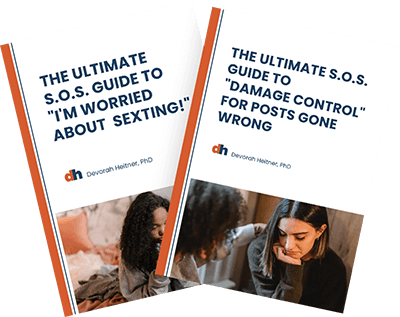Invited Guest Post by Media Intern, Emma Feuer
Northwestern University Class of 2025, Majoring in Journalism and Data Science
As a college student, I was born with a front-row seat to the evolution of technology and social media platforms like TikTok. I am old enough to remember the pre-iPhone era of the world, but I am young enough to have attended school surrounded by peers with social media profiles.
I first downloaded TikTok during my junior year of high school, right before the COVID-19 pandemic shut down most of my in-person interactions. Like many others, I turned to TikTok for entertainment and news. It was a great way to pass the time.
Since then, TikTok has turned into my guide for discovering new things, from restaurants to upcoming events to good books or music. I am not obsessed with TikTok, but the app has become a part of “normal” life to me. I remember the world in its pre-TikTok era, but I find it challenging to imagine my day without it.
Having reflected on my past and present use of TikTok, I have started thinking about my future on the app in light of this week’s congressional hearings with TikTok CEO Shou Zi Chew and debates on banning the platform.
I wonder, if the app becomes banned in the United States, what will I do with the time I normally spend on the app? Will I begin using the Reels features on Instagram, Snapchat, or Facebook? Will someone else make a similar app the government approves?
In the future, will we ever get over the generational barrier in conversations about platforms like TikTok?
Observing the conversations at the congressional hearing and people’s reactions to the questions asked, I noticed a knowledge gap between the older generations questioning CEO Chew and younger audiences watching. I am not taking a political standpoint on this issue here– I am purely referring to the differences in technological experiences between age groups.
I was surprised that in a hearing that could potentially ban one of the largest social media platforms from the country, so much time was spent discussing what feels like technology-common sense. From what I have seen on my TikTok and Instagram feeds, many people my age know how apps need to connect to WiFi or how camera filters temporarily track facial expressions. There appears to be a communal shock that these “technology basics” needed to be clarified.
The generational knowledge imbalance is just one of the many issues preventing a productive discussion in the hearing. But given the complicated nature of politics and my current place as a college student, I feel this is one area of the conversation surrounding TikTok I can contribute to.
As the world continues to evolve and technology advances, there will probably come another day where there is a new social media superpower besides TikTok being discussed at a congressional hearing. Before that day comes, I believe it is important that we teach one another and fill in each other’s knowledge holes when it comes to technology so we can be more prepared for these conversations.
Teaching each other can start by being more open about our technology and social media experiences during casual conversations.
Teaching each other can start by being more open about our technology and social media experiences during casual conversations.
For example, I spoke with Devorah this week, and it came up in conversation that I discovered my love for live music after the TikTok algorithm began showing me more concert videos. Devorah asked me why I think the app showed me these videos. While I am no algorithm genius, I explained how the app likely picked up that I spend time watching concert videos and skipping other types of videos.
It was also during this conversation that Devorah explained a parent perspective on algorithms and mental health to me. It felt like a conversation of mutual learning, where we helped each other understand different generations’ takes on social media platforms.
If conversations like these could happen more frequently, perhaps the generational knowledge gap surrounding social media can be closed. These conversations don’t need to be as complex as discussing algorithms. They can start by simply taking a photo and asking, “Hey, have you ever wondered how your phone puts a filter on your face? Let’s Google it.”
Hopefully, as we learn more about the world of technology and social media from each other, we can reach a place where we have more fruitful conversations about social media, both inside and outside of congressional hearings.

